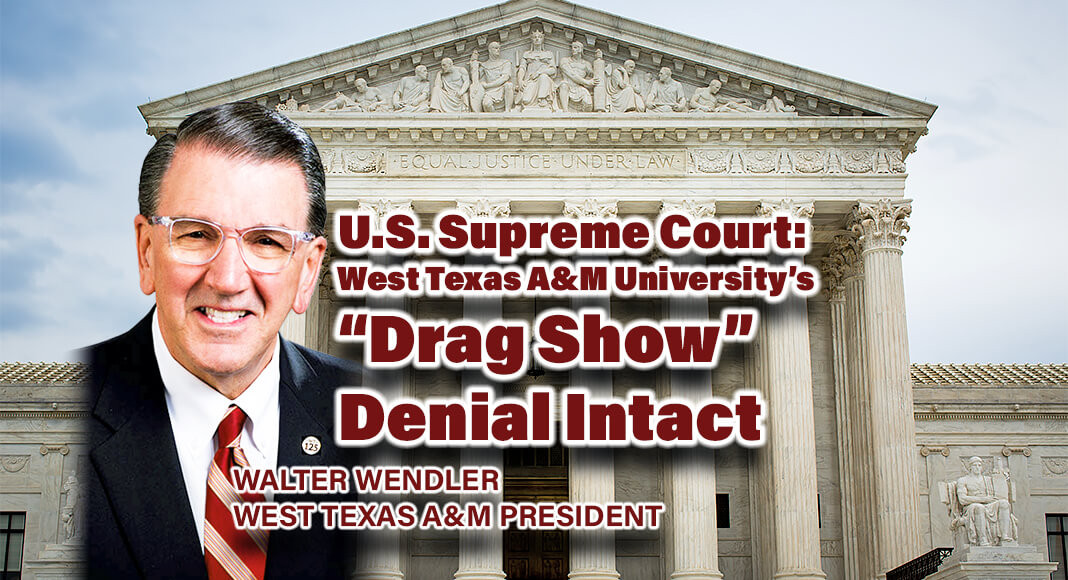
Texas Border Business
AUSTIN, Texas – In a case where Attorney General Ken Paxton is defending West Texas A&M University’s President for rejecting an organization’s request to host a college campus “drag show” with child attendees, the Supreme Court of the United States denied an injunction to the organization. Due to SCOTUS’s action today, President Wendler is free to maintain his denial of the “drag show” scheduled to take place on March 22.
The organization sought to short circuit the ordinary appellate process so they could host the show. The trial court, however, concluded that the organization had not met its burden to show it would succeed on the merits, and SCOTUS agrees.
“President Wendler’s efforts to uphold decency and protect women from hostile and degrading caricatures, and to protect children from exposure to obscene conduct, are completely defensible,” said Attorney General Paxton. “I’m pleased that a unanimous SCOTUS rejected the organization’s extraordinary attempt to force the University to host this activity.”
Previously, Attorney General Paxton secured an initial victory defending Wendler after he was sued for blocking the show on the school’s campus. A federal judge granted a motion by the Office of the Attorney General (OAG) to dismiss the claims for damages against Wendler, denying the plaintiffs’ request for an injunction by pointing to their lack of likelihood of success on the merits. At that time, the plaintiffs argued “drag shows” are protected speech under the First Amendment. The OAG argued that such a performance is conduct, not speech, and is not necessarily entitled to First Amendment protections.















